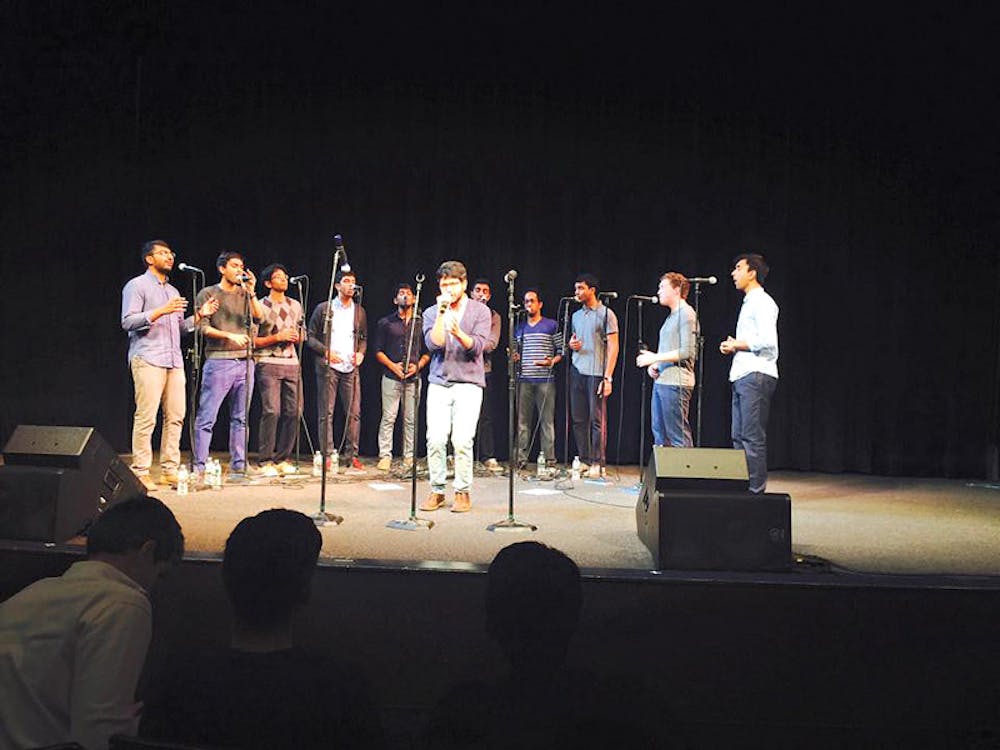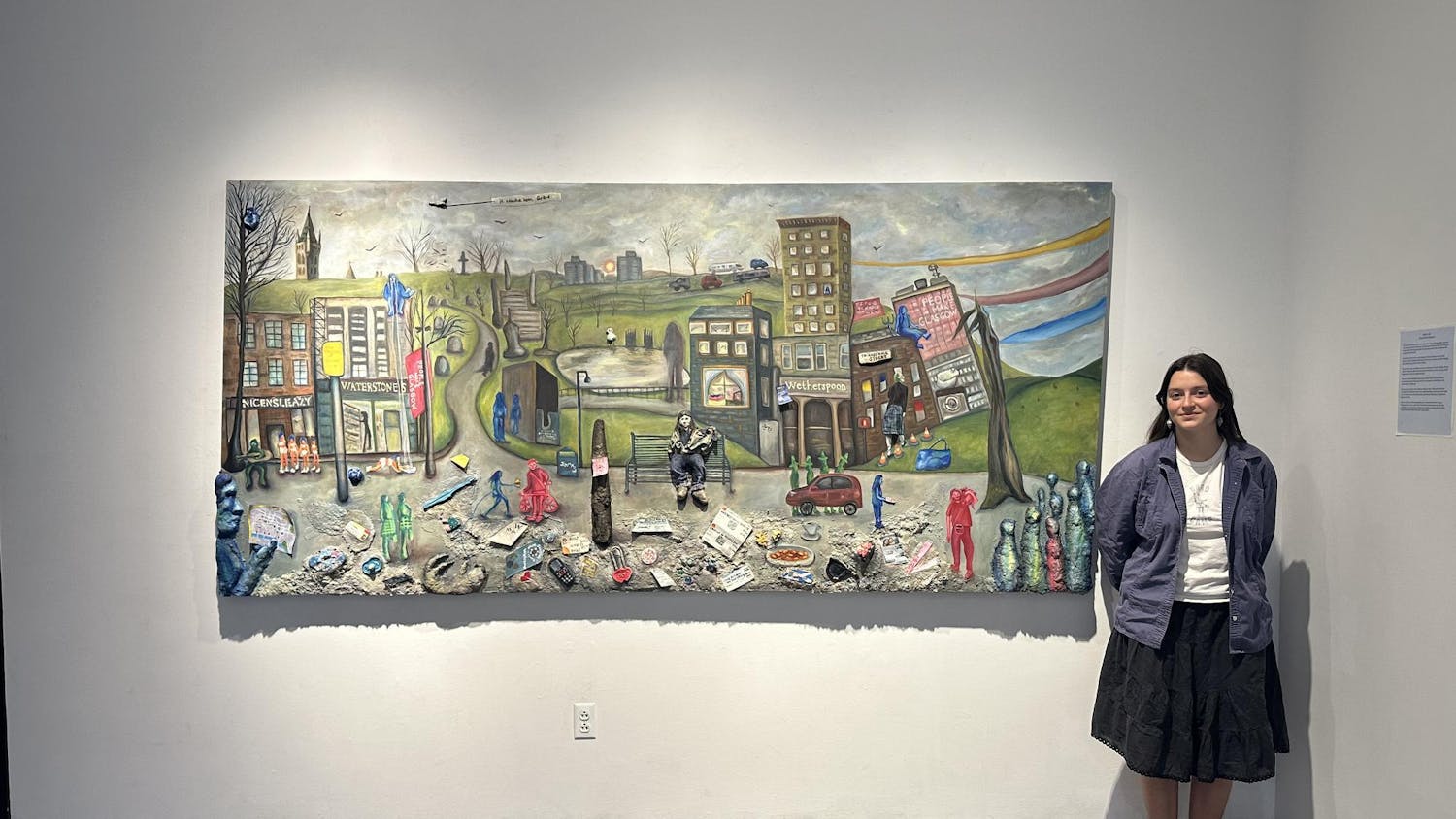If you only listen to the first few seconds of a Penn Masala song, you would probably label it as typical a capella fare — the arrangement of a mainstream pop song — until the group bursts unexpectedly and abruptly into one of their signature mashups of Hindi and English lyrics.
Penn Masala, a male student a capella group founded at Penn in 1996 and currently composed of 13 undergraduates, performed in Providence to a full crowd at the Rhode Island School of Design Auditorium Friday evening. The event was co-sponsored by Brown and RISD South Asian Student Associations, and tickets were available free of charge to anyone interested in attending.
“We have a really vibrant South Asian community here at Brown and at RISD, but we tend to get together in smaller groups” said Sriya Muralidharan ’15, one of the principal organizers of the event. “We wanted to bring in a really popular group with hopes of reinvigorating the South Asian community in Providence,” she added.
Since Penn Masala established itself as the first Hindi a capella group in the United States, they have managed to build a large following over the years, Muralidharan said. “They appealed to not only the South Asian community, but also all sorts of (people from the) collegiate population here.”
Wonho Rhee ’16 said he was motivated to attend the concert by his Indian friends and girlfriend, who were familiar with Penn Masala and who had highly recommended their music. “I wanted to see if the hype was real — it was!”
During the concert, the group performed many variations of familiar hit songs. Their mashups included selections such as “She Will Be Loved/O Re Piya,” “Heartless/Kabhi Kabhi” and “Viva La Vida/Jashn-e-Bahara.” Both the English and Hindi songs were received with uproarious applause and cheers from the audience.
“All the songs were really great,” Muralidharan said. “Mixing two songs requires a lot of the attention to the skeleton of the music — it’s definitely tricky,” she said.
Prashant Ramesh, a third-year at Penn and music director of Penn Masala, said he oversees all of the arrangements that the group puts together. “Sometimes we look for a Hindi song that we really like and look for an (English) song that mixes with it,” he said, adding that the process can begin with an English song as well.
Keeping their work relevant to American and Indian mainstream pop culture is “very important” to the group, Ramesh said. “While we do like to experiment with new genres, we definitely try to keep in mind what’s hot right now and what people are listening to,” he said, adding that the group keeps track of top songs on Billboard, iTunes and Spotify, as well as on popular Indian music sites.
Many of Penn Masala’s members “grew up in Indian-American families in the U.S.,” Ramesh said. The group turns to their shows and social media to reflect this cultural background, he said. “We try to convey that in every way that we can.”
“Most of our fans are similar to us in that they’re also Indian-American,” he added. “They’re struggling to balance their Indian upbringing with their living in America.”
Ramesh said the bicultural nature of the music was what initially drew him to join Penn Masala. “Once I joined, I felt at home with the group,” he added. “We consider ourselves really close, like brothers. … That’s a big part of what keeps us in it.”
Though Brown’s South Asian community is relatively small, this allows for the formation of “more tight-knit” bonds within it, Muralidharan said. “Growing up in the U.S., part of holding on to (my Indian) culture was music and Bollywood, and sharing (those aspects of myself) with my American friends,” she added. “Being able to do that here on campus and enjoy this event with all my friends, I think, is a real privilege.”
“I had a fun time listening to the songs I couldn’t understand and appreciating the vocal talent of the Penn Masala members,” Rhee said. “Mixing in the pop songs in English … certainly sweetened the experience for me. The mix was just right.”
“Primarily we hope that people come to our shows and enjoy the music and have a good time,” Ramesh said. “Beyond that, we hope that people listen to our music as a way of bringing together two aspects of their identity that they really care about.”





